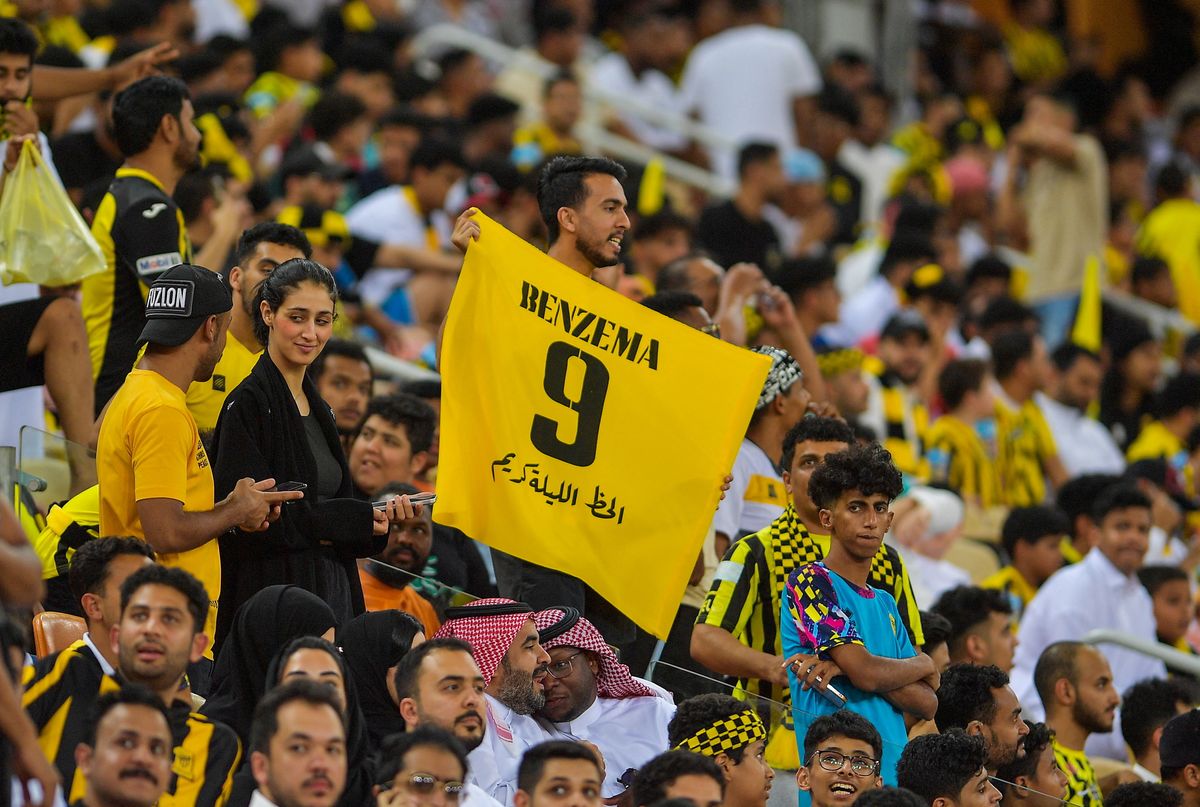Saudi Arabia turns to football to help diversify its economy
Football (or soccer, in some places) is a big deal in Saudi Arabia, especially among the younger crowd.

A few minutes every morning is all you need.
Stay up to date on the world's Headlines and Human Stories. It's fun, it's factual, it's fluff-free.
The backstory: Saudi Arabia, known for its heavy reliance on oil money, is on a mission to diversify its economy and ensure long-term financial stability. The kingdom also wants to present a more modern and globally aligned image while reducing its dependency on oil sales. So how is it doing that? Well, one move is investing big in sports and hosting major sporting events. That's where the Saudi Public Investment Fund (PIF) comes in. It's the country's sovereign wealth investment fund, and it’s playing a big role in achieving these goals.
Now, football (or soccer, in some places) is a big deal in Saudi Arabia, especially among the younger crowd. So, the government wants to tap into this passion and drive the growth of the leisure and entertainment industry. Its game plan includes building a thriving football league, attracting top talent and capitalizing on the citizens' love for the game to boost tourism.
But not everyone's cheering for this. Organizations like Amnesty International and Human Rights Watch have argued that Saudi Arabia is using sports as a distraction from its human rights issues, or “sportswashing.”
More recently: Famed football legend Cristiano Ronaldo joined Saudi Arabian club Al Nassr last December, signing a lucrative two-and-a-half-year contract after leaving the UK’s Manchester United. According to media reports, Ronaldo's contract is rumored to be valued at over €200 million (US$214.5 million). Following in Ronaldo's footsteps, Karim Benzema said goodbye to Real Madrid and signed a three-year deal earlier this month with another Saudi club called Al-Ittihad.
Meanwhile, Saudi Arabia also expressed interest in Lionel Messi, offering him an annual salary of more than £350 million (US$445 million) to join its football club Al-Hilal. But Messi decided this month to join a Miami franchise instead, which is owned by the legendary football star David Beckham.
The development: So, Saudi Arabia has big plans for the football world. The kingdom reportedly has ambitious plans to attract 100 top foreign players over the next five years. One club that's going all out is Al-Hilal. It's on a mission to strengthen its squad after falling short this year in the Champions League. And guess who it just signed? Kalidou Koulibaly, a defender from Senegal who just moved from Chelsea in the Premier League. It's official – both clubs have confirmed the transfer. Koulibaly will be playing for Al-Hilal until 2026. Now, the exact figures haven't been revealed, but rumor has it that Al-Hilal shelled out around £17 million (US$21.61 million) for this deal.
Saudi Arabia is also expected to bid to host the World Cup in 2030 together with Greece and Egypt.
Key comments:
"We'll continue to make history together," said Saudi football club Al-Hilal on Twitter after signing Senegal defender Kalidou Koulibaly.
"Saudi Arabia spends billions of dollars hosting major entertainment, cultural, and sporting events to deflect from the country's poor human rights record," said Human Rights Watch.
"They have the infrastructure. They have the country. They can host [a World Cup]. We saw already that in Qatar; it was an amazing event," said Mohammed Hamdi, an expert in soccer in the Middle East and a former director of Al Jazira FC in Abu Dhabi, to Sky Sports News, referring to Saudi Arabia. "This is a long-term vision where you can attract TV contracts, media, sponsorship and more visitors to the country."




Comments ()